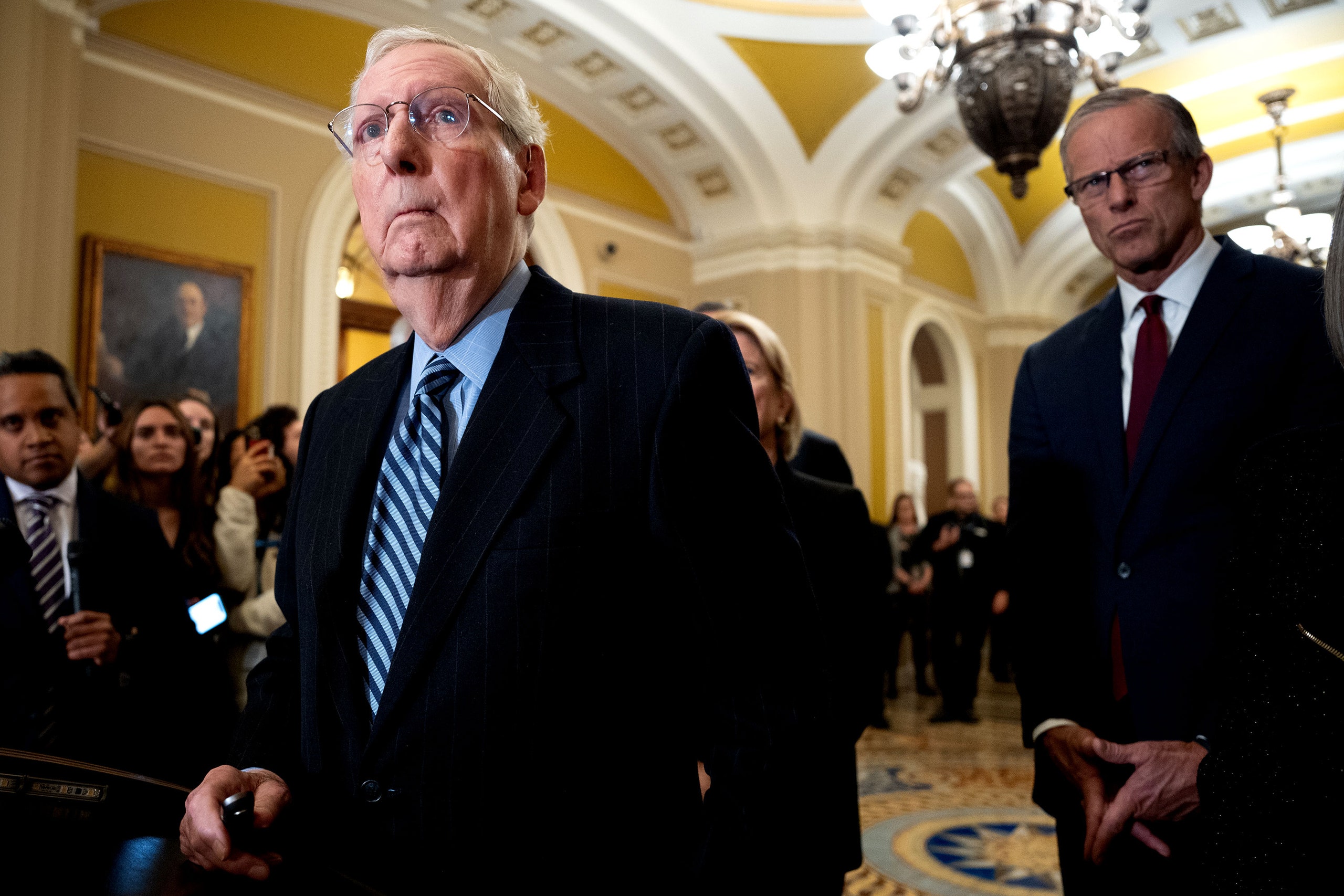Donald Trump took a moment to interrupt the Thanksgiving holiday weekend with the announcement that Kash Patel, a conspiracy-pushing loyalist, would serve as the next FBI director. As we’ve seen since 2016, here was Trump dominating the news cycle with a controversial move, musing about replacing an FBI director he nominated, Christopher Wray, with one so boosterish that he even wrote a series of children’s books called The Plot Against the King, the first of which offers a “fantastical retelling of Hillary’s horrible plot against Trump” for “the whole family.”
It’s worth pausing to appreciate that Patel made Trump the king in this children’s book, in case that wasn’t completely obvious. But more than just being a stylistic sycophant poised to give the president-elect a rubber stamp, Patel has that Project 2025 vibe to him—that dismantle-the-government-from-the-inside-out thing. According to The Wall Street Journal, Patel “suggested that the bureau had become too powerful and that he would strip it of its intelligence-gathering role and purge it of employees who refuse to go along with Trump’s agenda.” Appointing MAGA Republicans to lead agencies they plan to disassemble is one of the tropes of Trump’s second term and ties into Project 2025’s goals of unraveling the administrative state. Patel also vowed to “come after” members of the media if Trump were to win, telling Steve Bannon, “Whether it’s criminally or civilly, we’ll figure that out.”
While the Patel pick only adds to the sense of gloom that Trump’s authoritarian fantasies may come to fruition, it’s important to remember that autocrats want you to believe they are more powerful than they already are. Trump has been president-elect for less than a month and we’ve seen instances in which his ambitions have been checked. His first attorney general pick, Matt Gaetz, had to withdraw because of sexual misconduct allegations (which he denies). The MAGA favorite for Senate majority leader, Rick Scott, lost a secret ballot to John Thune, a lawmaker more in the mold of Mitch McConnell (who, likely not seeking reelection, could be a thorn in Trump’s side). Scott, it should be noted, didn’t even make it to the second round; he got 13 votes, less than not only Thune (23) but John Cornyn (15).
Trump has historically bullied Republicans into doing what he wants, but in a 53-47 senate, he can only afford to lose three senators in trying to get his cabinet picks confirmed (given that JD Vance would be the tie-breaker in a 50-50 vote.) Some who could be swayed against Trump include Maine’s Susan Collins, Alaska’s Lisa Murkowski, and North Carolina’s Thom Tillis. I’d also keep my eye on the independent-minded(ish) doctor Bill Cassidy and Mitt Romney’s successor John Curtis. While it’s fair to be skeptical whether some of the aforementioned senators will buck Trump and the Republican Party line—see Collins and Murkowski’s role in the fall of Roe—it’s no time to cynically write off the Senate as a check on executive power.
Yale historian Timothy Snyder’s second rule of fighting autocracy is to “defend institutions,” which, he writes, “help us to preserve decency.” Snyder adds, “They need our help as well. Do not speak of ‘our institutions’ unless you make them yours by acting on their behalf. Institutions do not protect themselves. So choose an institution you care about and take its side.” These Republican senators have the constitutional power of “advice and consent,” a responsibility we should hold them to—especially if Trump tries to opt for recess appointments to get unconfirmable nominees into positions of great power.
If we are cynical, if we assume the worst from everyone, then we have surrendered in advance. I think it’s important to remember that even Trump responds to pushback. Trump is very reactive, seen, at times, as taking ideas from the last person he’s talked to. The New York Times’ Maggie Haberman last month told her colleague, Ezra Klein, “He doesn’t especially like the work of governing, didn’t when he was in the White House. But he likes power, and he likes being praised, and politics combines both of those things.” There are ways to get Trump to do things; incoming chief of staff Susie Wiles seems to have figured it out. Trump isn’t a mystery, if anything he is very straightforward and transactional.
If pro-democracy voters expect senators to do nothing, they are effectively giving those lawmakers permission to do just that. We should expect our elected officials to protect norms and institutions; that also goes for members of the House, where Republicans hold a slim majority. If people care about democracy and the direction of the country, they should call on senators to do their jobs and subject Trump’s picks, such as Robert F. Kennedy Jr., Tulsi Gabbard, Pete Hegseth, and Patel, to legitimate scrutiny.
Do I think democracy makes it through another Trump administration? Only if democracy supporters stand up for norms and institutions, and resist falling down the path of cynicism and hopelessness. It only takes one person to do the right thing.
More Great Stories From Vanity Fair
2025 Golden Globe Nominations: The 14 Biggest Snubs and Surprises
Rupert Murdoch’s Succession Fiasco
Kylie Kelce Dethrones Joe Rogan’s Dominant Podcast
The Royals Are Planning One of Their “Biggest Family Christmases Ever”
The Best TV Shows of 2024
Why Is RFK Jr. Shirtless Again?
Cormac McCarthy’s Secret Muse Breaks Her Silence After Half a Century
Why Princess Diana Hated Christmas With the Windsors
From the Archive: The Society Murder That Shocked New York City
How Netflix’s One Hundred Years of Solitude Honors a Beloved Novel

